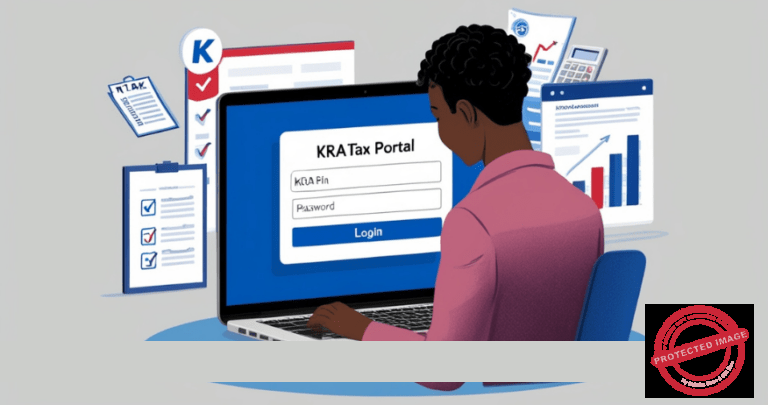To be covered in this post about valid tax assessment objection:
- Tax Assessment?
- Tax Objections
- Legal Requirements for Tax Objections
Introduction
Every taxpayer has a right to object to any tax assessment issued by the tax authority, including VAT assessments
Tax Assessment
A tax assessment is an evaluation by a tax authority determining tax liabilities due from a taxpayer. The tax liabilities in the assessment are expected to be paid immediately.
The tax assessment can be done by the taxpayer or tax Commissioner. A taxpayer will normally self-assess. This is referred to as an original assessment.
The tax Commissioner can issue:
- A default assessment where the taxpayer has failed to report a self-assessment.
- An amended assessment is a correction of the original assessment, a default assessment, or an amended assessment.
This post is about tax assessments issued by the tax commissioner. The tax assessments are a declaration by the tax commissioner that the taxpayer has tax liabilities to pay.
The tax assessment is crucial because it signals the commencement of a tax dispute. In case of a tax dispute, this assessment is relied on by the Supreme Court if the matter touches on the Constitutional interpretation.
Tax Objections
The Objection by the taxpayer is the first response from the taxpayer. A Tax Objection is a disagreement for a tax assessment. Again the tax Objection is important because, in case of a tax dispute, this objection is relied on through to the Supreme Court if the matter touches on the Constitutional Interpretation.
Therefore, every taxpayer must know what is required in a tax Objection.
Section 51 of the Tax Procedures Act (2015) details how a tax assessment Objection should be made. Objections to tax assessments should include various items. The various items will enable the Tax Commissioner to make a Tax Decision. Upon receiving the tax Objection notification, the tax Commissioner can treat the tax objection as either as:
- Valid or
- Not valid.
A valid tax Objection means different things to the taxpayer and the tax Commissioner.
A valid tax objection means the following to a taxpayer:
- The valid tax objection implies that the questions by the taxpayer about the tax assessment are valid.
- The tax commissioner can give the taxpayer a hearing.
- The taxpayer will have an opportunity to prove their case.
- The taxpayer has followed the dictates of the tax law. In case the taxpayer is not satisfied with the decision of the tax commissioner, the taxpayer will have an opportunity to go to the Tax Appeals Tribunal.
- The taxpayer can commence making payments for any tax assessments they agree to.
- The tax commissioner cannot enforce the tax debt.
A valid tax objection means the following to a taxpayer:
- The tax Commissioner can act on the objection notification.
- The tax Commissioner can receive new evidence from the taxpayer.
- The tax Commissioner cannot enforce the tax debt.
- The tax Commissioner may start receiving any tax liabilities that are not being contested.
- A tax dispute process has commenced.
When a tax objection is not valid, tax Objection notification is not an Objection.
Therefore, this has tax implications. The tax commissioner can:
- Enforce the total tax debt without reference to the taxpayer.
- The taxpayer losses all right to object to the tax assessment.
- The taxpayer will have to go to the Courts of law for redress.

Legal Requirements for Tax Objections
According to Section 51 of the Tax Procedures Act (2015), specific items must be included in the objection to be treated as valid.
The following are seventeen (17) items that must be contained in a tax objection to be treated as valid.
- A written letter – tax objections must be in writing because tax demand letters are in writing.
- Tax assessment objector and address (email, post office, physical, phone, etc.)
- Date – objection letter must be dated.
- Period of response – the response must be within colander 30 days.
- Tax assessment objector’s reference number – the objection letter must be referenced.
- Tax assessment objector’s reference number – the objection letter must have a reference stating clearly that the letter is an objection letter.
7. The subject of the reference – stating clearing what is being objected – tax type, tax assessment demanded, date of the demand letter
8. Demand letter reference – every letter from KRA has a reference number and date.
9. Tax payment evidence – evidence of payment of undisputed amounts or
10. Arrangements to pay tax – evidence of arrangements to pay the undisputed amounts.
11. Why – reasons for the objection.
12. Tax type to be amended if several tax types, e.g., VAT.
13. Contents of the tax type to be amended:
- VAT on domestic (local) supplies.
- VAT on imports.
- VAT on imported services.
- Withholding VAT.
- Input VAT.
- Output VAT.
14. Areas of the tax type to be amended e.g.
- Tax rate.
- Taxable amounts.
- Inclusion of VAT credits brought down.
- Inclusion of Withholding VAT.
15. Actual amount of tax to be amended – includes amount reduced or increased due to:
- Tax rate.
- Taxable amount.
- Inclusion of VAT credits brought down.
- Inclusion of Withholding VAT.
- Signature – objection letter must be signed by the person writing the objection.
- Evidence of delivery – acknowledgment either KRA stamp or email acknowledgment.
If the taxpayer is objecting after thirty (30) days from the date of the tax assessment demand letter, the taxpayer must provide the reasons for lodging the objection late. The reasons must be according to Section 51 of the Tax Procedures Act (2015).
In this post, we have addressed isses about valid tax assessment objection:
- Tax Assessment?
- Tax Objections
- Legal Requirements for tax Objections













